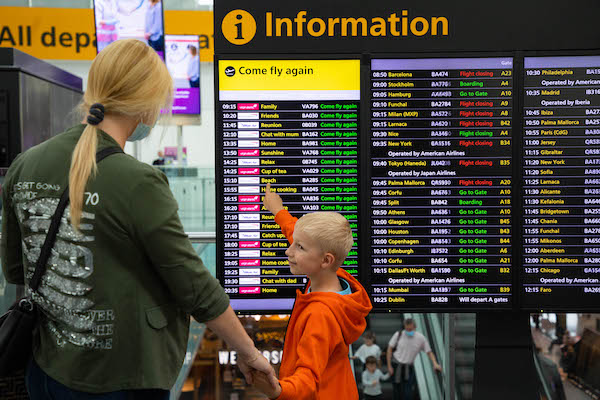The announcement of an increase in Air Passenger Duty (APD) sparked widespread criticism from travel and aviation leaders. Experts argue that this move is detrimental to business travel and economic growth. The decision has raised significant concerns about the impact on British businesses and the broader travel industry.
Immediate Reactions from Industry Experts
The Chancellor’s announcement of a one-off increase in APD on non-economy flights has been met with severe criticism. Clive Wratten, CEO of the Business Travel Association (BTA), described the decision as “disastrous for the economic welfare and well-being of British businesses and their employees.” He emphasised that business travel is essential not only for the wealthy but also for small and medium enterprises, researchers, and charities.
Wratten further criticised the absence of a mechanism to direct the revenue from this tax towards innovations in the airline sector or Sustainable Aviation Fuels. “This is just another tax on British businesses,” he lamented. Similarly, Tim Alderslade, CEO of Airlines UK, argued that this increase goes against the Prime Minister’s commitment to avoid discouraging flying through taxation.
Potential Negative Impact on Competitiveness
Alderslade warned that the increase would only worsen the UK’s competitive position globally, given that aviation taxes and airport charges are already among the highest in the world. He suggested that the government should focus on supporting the transition to net-zero emissions, a path the US and EU are significantly investing in.
Abta CEO Mark Tanzer echoed these sentiments, stating that while the 2p cut in National Insurance is welcome, the high overall tax burden remains a concern. Tanzer noted that additional or increased aviation taxes could stifle the sector’s growth, particularly when the UK already faces substantial air travel taxes.
Responses from Regional and Sector-Specific Associations
Julia Lo Bue-Said, CEO of Advantage Travel Partnership, described the budget as “underwhelming,” though she acknowledged the benefits of the Growth Guarantee Fund extension. However, she expressed disappointment over the rise in APD for non-economy flights.
Scottish Passenger Agents’ Association (SPAA) President Jacqueline Dobson called the increase “short-sighted,” arguing it would hamper the recovery of the travel industry and the broader economy, especially in Scotland. Dobson urged the UK government to collaborate with the Scottish government to develop a more sustainable aviation tax system.
Industry Call for Sustainable Solutions
Karen Dee, CEO of the Airport Operators Association (AOA), stated that the rise in APD is “bad news” and represents a missed opportunity for the aviation sector. She highlighted that business travellers are crucial for foreign investment and job creation in the UK.
Dee advocated for reinstating tax-free shopping for international visitors to boost the economy. She also criticised the lack of action on reducing business rates, noting that airports face significant rate increases from 2026 due to revaluation. This, she argued, is an additional burden at a time when airports are recovering from the pandemic.
Ben Edgar-Spier of Sykes Holiday Cottages labelled the removal of tax relief on holiday lets as unfair, suggesting it would not resolve the housing crisis but rather negatively affect local economies dependent on tourism.
Business Leaders’ Recommendations to the Government
Martin Ferguson of American Express Global Business Travel suggested that instead of increasing APD, the government should use the revenue to support Sustainable Aviation Fuel production in the UK. Ferguson condemned the rise as “hugely disappointing,” highlighting the adverse effects on business travel and trade.
Ian Sinderson, CEO of ATPI, urged the government to avoid treating the travel industry as a “bottomless pit of potential taxation.” He explained that increasing APD would further hinder the recovery of the business travel sector, which is crucial to the UK’s GDP.
Murray Burnett of Munro’s Travel expressed concerns over the increased costs for business clients and the potential impact on Scotland’s competitiveness, especially in the energy sector. He called for government support to find a balanced solution for aviation that doesn’t penalise business travellers.
Economic and Consumer Reactions
A spokesperson for Virgin Atlantic criticised the APD increase, arguing it penalises both families travelling in premium classes and business travellers. The spokesperson stated that this decision undermines the UK’s economic competitiveness and the importance of leisure travel.
Joss Croft, CEO of the UKinbound association, welcomed the National Insurance cut but criticised the failure to restore VAT-free shopping, describing it as a missed opportunity to stimulate growth. Richard Toomer of the Tourism Alliance highlighted the UK’s poor ranking in price competitiveness for tourism and warned of the adverse effects on the hospitality sector due to the APD rise.
Karen Dee of AOA reiterated her reservations about the APD increase, pointing out that higher business rates for airports would add to the financial strain on the industry. She advocated for measures that would help enhance the UK’s attractiveness as a travel destination.
Broader Industry Perspectives
Ben Edgar-Spier argued that holiday let owners have been scapegoated and that removing tax relief will negatively impact local economies reliant on tourism. He noted that the housing crisis is influenced by numerous factors, and targeting holiday lets would not address the root causes.
Martin Ferguson recommended that the revenue from increased APD should be directed towards Sustainable Aviation Fuel production to support environmental goals. His comments underscore industry frustrations with taxation measures seen as punitive rather than supportive of sustainable development.
The response from travel and aviation leaders highlights the widespread concern over the APD increase. Many industry experts believe that this decision will detrimentally affect business travel, economic growth, and the UK’s global competitiveness. There is a clear call for the government to reconsider and develop more sustainable and supportive measures for the aviation sector.

